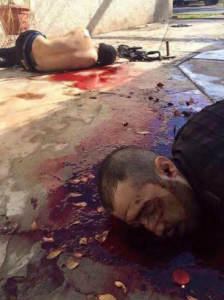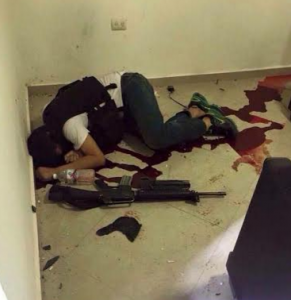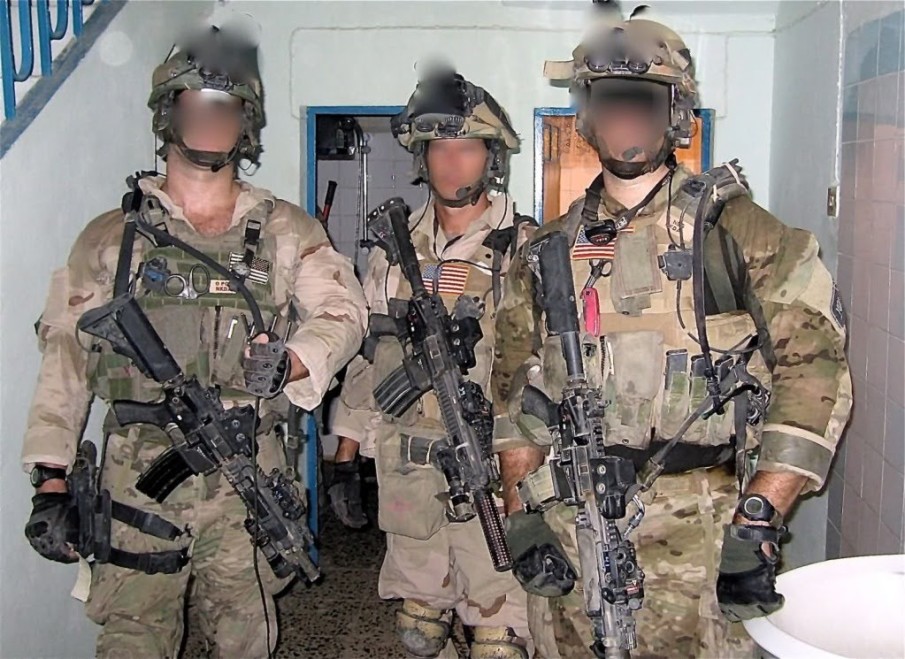Mexico’s most notorious drug lord, Joaquín Guzmán Loera, better known as El Chapo, was recaptured following an intense firefight between Mexican Marines and Chapo’s goons in Sinaloa, Mexico, last Friday. Although Mexican officials claimed that the entire operation to recapture El Chapo after he escaped from prison for the second time was planned and executed by Mexico, multiple sources report to SOFREP that American law enforcement officers and JSOC operators were involved in the mission.
The operation, dubbed “Black Swan” by the Mexican government, was actually targeting Chapo’s lead sicario (assassin) but came across the cartel leader by chance. The Mexican Marines stormed the house, and in the ensuing firefight five cartel gunmen were killed and six were injured. One Marine was also injured. During the firefight, Chapo escaped through a series of tunnels and then tried to flee in a stolen vehicle. Federal agents caught sight of him and arrested him on the spot. According to one account, the arresting agents had not even been aware of the larger mission being carried out in the area by Mexican Marines. Arresting Chapo was simply a chance encounter, a stroke of good luck.
Rumors of American special operations personnel roaming around the badlands of Mexico have been floating around for well over a decade at this point, but the idea of bearded, ball cap- and Oakley-wearing American soldiers south of the border has been more fiction than fact. JSOC maintained a small analysis cell in Mexico, but the Mexican government has been extremely wary of an American military presence on the ground. Much of this has to do with fears of neocolonialism, as well as Latin American machismo—insecurity over the fact that Mexico cannot manage its own internal affairs.

(Pics of the recent raid that resulted in the capture of El Chapo)
While America’s so-called “war on drugs” is perhaps at an all-time low socially and politically, with our focus on the Middle East, the capture of El Chapo is still a tactical win for the United States, even if it only gets us incrementally closer to securing the rule of law in Mexico.
In the lead for the capture were the Mexican Marines, who are the go-to preferred force for counter-drug cartel operations in a country where public officials are often hopelessly corrupt. It is interesting to see how, around 2006 or 2007, the Mexican Marines suddenly became very effective at direct-action (DA) raids. Such raids were responsible for capturing and killing high-value targets (HVTs), causing speculation that the Marines were receiving a little help from their North American neighbors. America has also leveraged its significant signals intelligence (SIGINT) capabilities to help the Mexican authorities track down drug cartel leaders.

(Another Chapo goon killed in the raid that resulted in his capture)
In regards to the latest El Chapo capture, SOFREP has been told that it was actually the U.S. Marshals who had an important role in tracking down the drug lord. Also on the ground was the U.S. Army’s elite counterterrorism unit, Delta Force. Operators from Delta served as tactical advisors but did not directly participate in the operation.
This type of arrangement is hardly unprecedented, as Delta also worked in the shadows during the search for, and eventual killing of, Pablo Escobar in Colombia. They’ve also served in advisory capacities during hostage-rescue missions in places as diverse as Sudan and Peru. Delta Force has also remained behind the scenes in the capture of other HVTs, from Manuel Noriega in Panama during the 1989 invasion, to the killing of Uday and Qusay Hussein in Iraq in 2003. Also worth noting is the unit’s role in tracking down and arresting Bosnian war criminals in the 1990s.
Already have an account? Sign In
Two ways to continue to read this article.
Subscribe
$1.99
every 4 weeks
- Unlimited access to all articles
- Support independent journalism
- Ad-free reading experience
Subscribe Now
Recurring Monthly. Cancel Anytime.
Although Delta had some level of involvement in the operation, their presence is probably less interesting than many would assume. Law enforcement agencies often request the presence of Delta operators as advisors to sensitive operations. These operators are often there putting in face time to appease the request of a federal agency, but may have little if any actual participation in the planning and execution of events. Such was the case when Delta was asked to consult on the Waco stand-off between the ATF, FBI, and the Branch Davidians in 1993. Law enforcement agencies are said to regard the presence of a JSOC operator as a sort of lucky talisman.
The good news is that it is now unlikely that Chapo will be escaping from prison a third time as the Mexican government is signaling that he will be extradited to the United States to face prosecution. When the black Chinook comes for Chapo, we will know that he will finally face the justice that he has long evaded.












COMMENTS